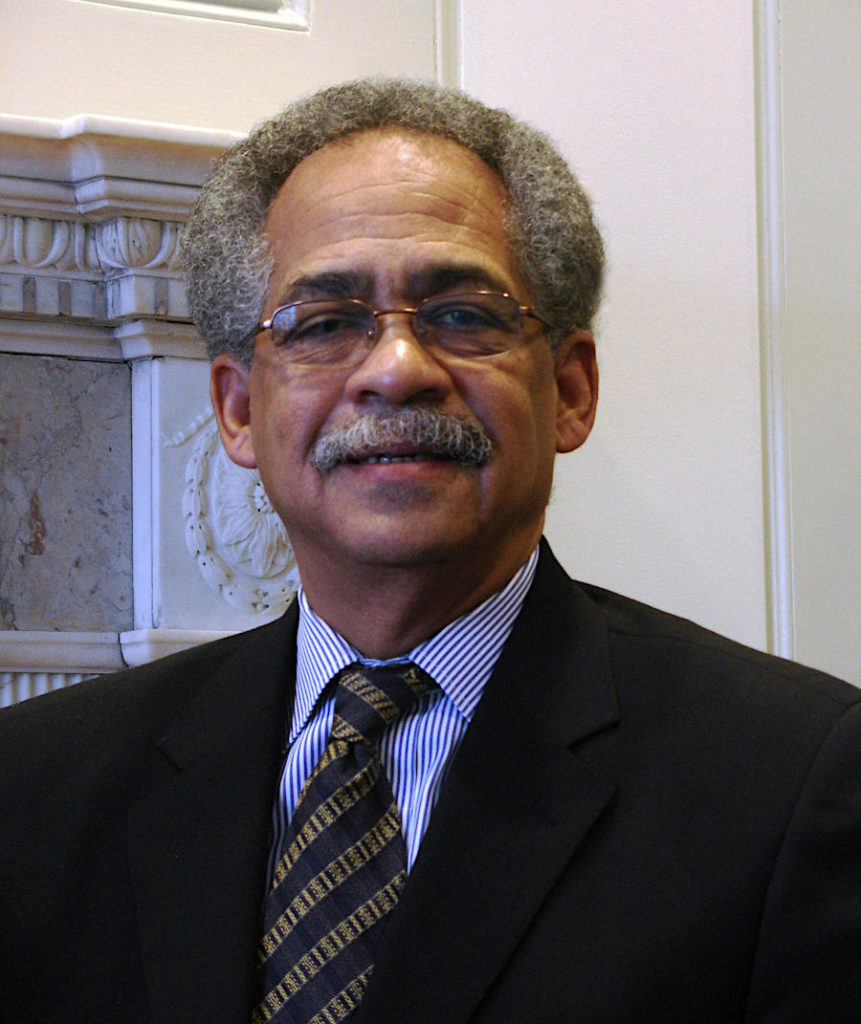Ancient religious divide – Modern fight for power
An evening with
Ambassador Kenton Keith
Tuesday, February 13, 2018
5:30-6:15 p.m. – Reception 6:15 p.m. Dinner
7:00-8:30 p.m. – Presentation and Discussion
Schiff Conference Center, Cintas Center at Xavier University
Today’s burgeoning proxy conflicts in the Middle East between forces loyal to Sunni Saudi Arabia and Shia Iran are rooted in irreconcilable religious differences between the two main schools of Islam. Rarely have the two powers been as close to open conflict as they are today. Iran’s regional influence is increasing as Shia allies in Iraq, Syria, Lebanon and elsewhere appear to be gaining influence. Saudi Arabia’s succession drama is playing out in ways that few would have predicted only a couple of years ago. The Kingdom is involved in a conflict in Yemen that pits Sunni against Shia. Both Saudi Arabia and Iran are in existential conflict with ISIS, which is largely Sunni.
Each has oil and gas resources, but each has domestic economic and political challenges that have distanced the leadership from their populations. U.S. interests are tied to maintaining stability in the Middle East, progress toward Mideast peace between Israel and the Arab world, and unimpeded access to oil and gas. All those interests are affected by the dynamics of Saudi-Iranian competition.
 Kenton Keith retired from government service in 1997 after four years as a naval officer and thirty-two in the U.S. Information Agency and Department of State. His final years at USIA included assignments in Brazil, Paris, and Cairo in public affairs and cultural affairs in deputy and senior positions. In Washington, he served as both Deputy Area Director and Area Director for USIA’s (NEA) North Africa, Near Eastern and South Asian Affairs. Keith led the USIA planning team for the amalgamation of foreign affairs agencies. He was confirmed as Chief of Mission Doha, Qatar in 1992. For five years he served as a team leader in the Department’s Office of the Inspector General, before being named US Ambassador to Qatar in l992 for three years.
Kenton Keith retired from government service in 1997 after four years as a naval officer and thirty-two in the U.S. Information Agency and Department of State. His final years at USIA included assignments in Brazil, Paris, and Cairo in public affairs and cultural affairs in deputy and senior positions. In Washington, he served as both Deputy Area Director and Area Director for USIA’s (NEA) North Africa, Near Eastern and South Asian Affairs. Keith led the USIA planning team for the amalgamation of foreign affairs agencies. He was confirmed as Chief of Mission Doha, Qatar in 1992. For five years he served as a team leader in the Department’s Office of the Inspector General, before being named US Ambassador to Qatar in l992 for three years.
As Ambassador to Qatar he oversaw U.S. cooperation with American private sector companies competing for a share in the rapid expansion of Qatar’s LNG development, related technologies, as well as traditional petroleum exploration and development. He participated in successful negotiations with the Qatari government on regional security cooperation including the pre-positioning of U.S. military equipment and had an active role in Qatar’s establishment of American university faculties in the country.
Post Foreign Service Keith was Senior Vice President of Meridian International Center, the largest program agency assisting the Department of State in the management of the International Visitor Leadership Program. After retirement from Meridian, Ambassador Keith returned to State for occasional stints as Team Leader for Office of Inspector General teams. He led inspections of embassies in Luxembourg, The Hague, Reykjavik, Madrid, Lisbon and Brasilia, as well as the board of the Broadcasting Board of Governors.
Keith serves on the boards of the conflict resolution organization Partners Global, the Association of Diplomatic Service and Training, the Washington Humane Society, and the anti-human trafficking organization Artworks for Freedom. He belongs to the American Academy of Diplomacy, the citizen diplomacy organization Global Ties U.S., Meridian’s Hospitality and Information Service, and DACOR, and organization for retired diplomatic and consular officers.
Ambassador Keith is a Chevalier in the French Order of Arts and Letters. He is a member of the Cosmos Club of Washington, DC.
Event sponsored by:


